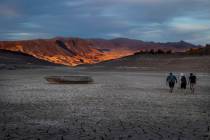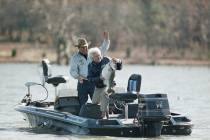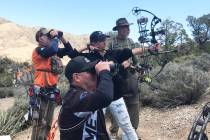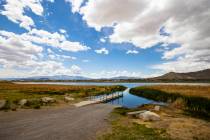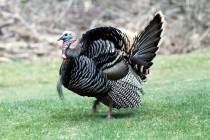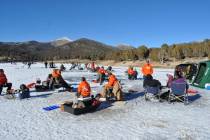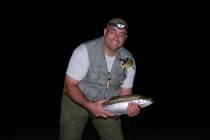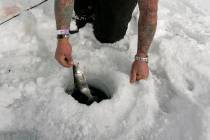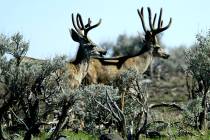Ruling in bear attack could hurt land-managing agencies
No matter how developed our society becomes, there will always be within us an inner drive to seek adventure. Ultimately, that search takes many of us into the outdoors, where we can be relatively free to test our physical and mental ability to overcome challenges and in some cases push past our inner fears.
Some people make it only as far as the paved road will take their modern home on wheels or perhaps as far as the last developed campground. Others venture far beyond civilization’s reach, where vehicles aren’t allowed.
For the rest of us, though, adventure is found somewhere in between these two extremes. We will drive past a developed campground and find a camping place where a latrine or porta-potty is the norm, water is brought in or purified and the only camp rules are the ones we make.
There is something about being on our own in the wild, away from the fetters of life in a jungle of asphalt and concrete that makes us feel alive. It invigorates and renews the soul while providing a strong sense of independence.
Naturally, seeking adventure while basking in the freedom of the wild outdoors requires that we accept the fact that bad things can and sometimes do happen. You can break a leg in a fall or have a heart attack while hiking to a scenic overlook. Rattlesnakes will bite if they feel threatened. Boiling water burns. Hypothermia kills. Wild animals sometimes do the unthinkable. Poison oak makes poor toilet paper.
Recognizing the fact that bad things can and sometimes do happen in the outdoors requires us to accept and exercise an increased level of responsibility for our own safety, the safety of those who accompany us and the safety of anyone else who might be camped or recreating close enough to be impacted by the things we do or don’t do.
That is why I question the ruling issued last week by a federal judge that awarded nearly $2 million to a Utah family whose 11-year-old son, Sam Ives, was dragged from its tent and killed by a black bear in June 2007. They were camping in an undeveloped campsite about 30 miles southeast of Salt Lake City in an area of the Wasatch Mountains known to hold black bears. The ensuing investigation showed that Ives had taken a granola bar and a soda into the tent, a serious sin in bear country. Signs posted in the area by the U.S. Forest Service warned of the potential dangers associated with bears.
Nevertheless, Ives’ parents successfully argued in court that the forest service had a responsibility to notify them specifically about an incident earlier that day in which the bear reportedly opened coolers and slashed his way into the tent of another camper who had been using the same campsite. After receiving that first report, forest service personnel conducted an extensive search for the bear but came up empty.
Judge Dale Kimball, U.S. District Court of Utah, found the U.S. Forest Service to be 65 percent at fault for failing to properly notify the public that a bear was in the area and the Utah Division of Wildlife Resources 25 percent at fault for not communicating better with the forest service. He assigned 10 percent of the blame to Ives’ family for leaving food out in bear country. While our hearts go out to Ives’ family, whose sense of loss few can truly understand, you have to wonder whether the judge’s ruling opens the door for endless lawsuits against public land-managing agencies.
Freelance writer Doug Nielsen is a conservation educator for the Nevada Department of Wildlife. His “In the Outdoors” column, published Thursday, is not affiliated with or endorsed by the NDOW. Any opinions he states in his column are his own. He can be reached at intheoutdoorslv@gmail.com.



